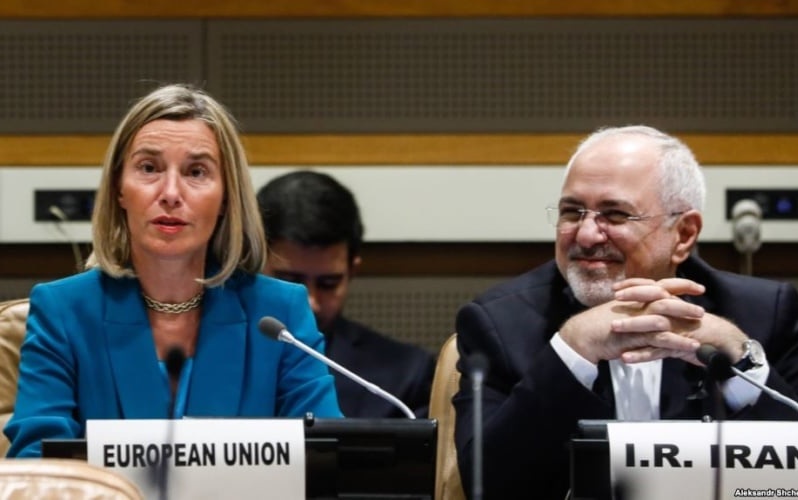Iran’s Foreign Minister Mohammad Javad Zarif has declared that seven European central banks will secure trade with Tehran despite comprehensive US sanctions.
Zarif expanded on an announcement with the European Union’s Federica Mogherini of a “special payment channel”, agreed in talks on the sidelines of the UN General Assembly in New York this week. He said the system will be based on the Euro, but he did not name the seven countries involved.
Iran Daily, Sept 28: Limited Currency Recovery After European Payment Channel Announced
The Foreign Minister also said the establishment of the channel will take some time, raising the question whether it will be in place when the comprehensive American restrictions — including on Iran’s energy and financial sectors — take effect in five weeks’ time.
“It will not be fully satisfactory but it can provide meaningful benefit to Iran,” Zarif said. “But we’ll have to wait and see.”
The actual mechanism would be to avoid dollars. You can use your own currency. Sell stuff in your own currency, buy stuff in the other country’s currency, and at the end of a specific period, balance it out in a non-dollar currency. It’s quite possible and may even be profitable.
The European Union has pledged to shield European companies from US punishment if they continue to trade and invest in Iran. However, the EU has been unable to ensure guarantees for larger companies from what could be billions of dollars in fines, leading many of them to suspend or draw down their links with Tehran.
Deputy Foreign Minister Abbas Araqchi emphasized in an interview with State outlet IRNA, “Europeans know about our view that by November 4, at least part of those mechanisms should come into force.”
Donald Trump announced the implementation of expanded sanctions in May, when he withdrew the US from the 2015 nuclear agreement between Iran and the 5+1 Powers (US, UK, France, Germany, China, and Russia).
Araqchi admitted that, even before the comprehensive measures are in place, the sanctions are hindering Iran’s oil exports — the source of about 80% of Government revenue.
“All parties that will be banned from buying oil from November 4 had already begun to reconsider their Iranian oil purchases in advance,” he said.
Iran’s oil sales have dropped 30% since April from 2.5 million barrels per day to below 2 million bpd, and a further fall is expected. India, Japan, and South Korea — three of Iran’s top customers — have announced there will be no purchases in November, leaving China as the Islamic Republic’s lifeline.
But Zarif’s announcements this week have brought a respite from the currency crisis in which the rial has lost more than 70% of its value since January. After falling 20% between Sunday and Tuesday, the currency — which was already at a historic low of 45,000:1 v. the US dollar at the start of the year — has maintained a limited recovery to 175,000:1 on Saturday.


not quite sure that stabilizing at 175000:1 can be considered a recovery